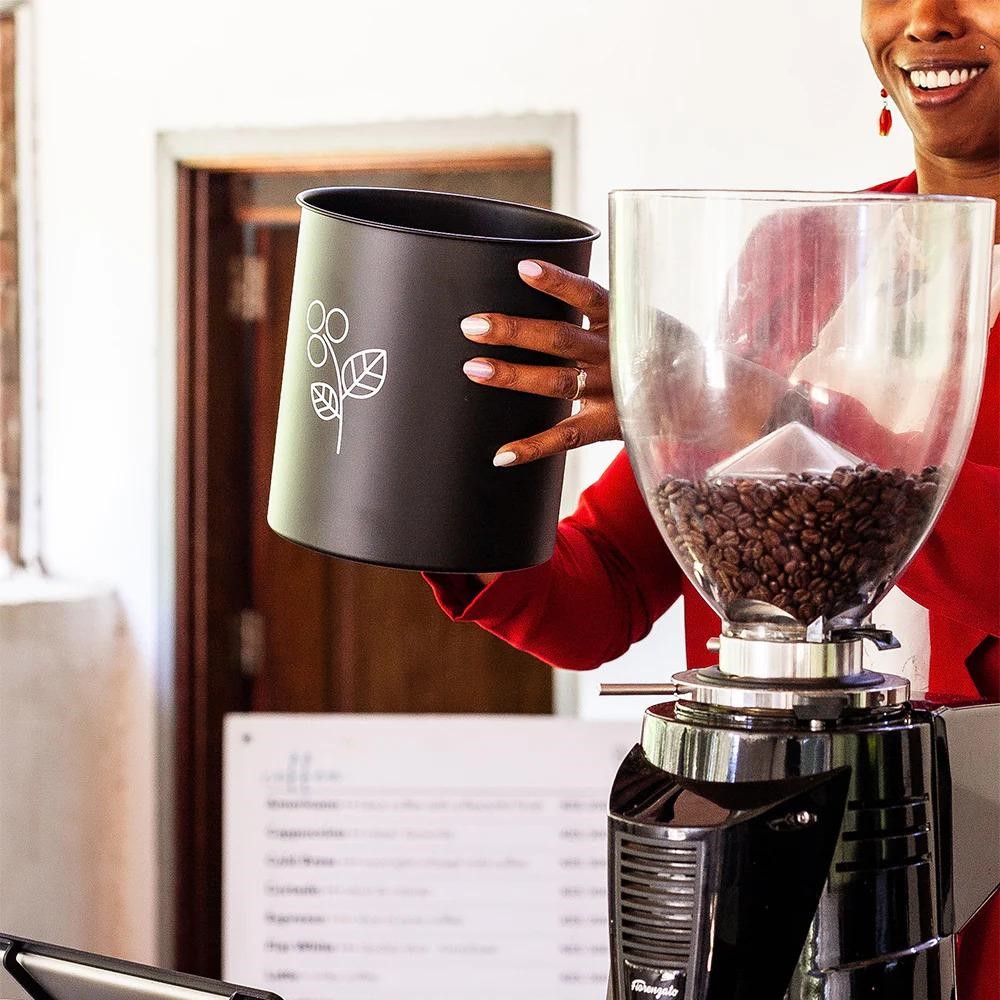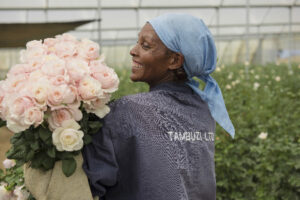By Samuele Tini, Host of The Sustainability Journey podcast
This is part three of a six-part series on sustainable business practices in Africa. You can find part one here, part two here, part four here, and part five here.
In our recent article, we explored the sustainability business case in Africa with BLab Africa’s director. Our next piece embarks on a journey to discover innovative businesses in the African continent, spotlighting companies that are reshaping business practices in emerging markets. In a world often divided by entrenched positions, there is a craving for positive news about companies succeeding while also doing good. Enter Ritesh Doshi, CEO of Spring Valley Coffee.
Spring Valley, once a neighborhood of coffee estates in Nairobi, has transformed into a fully urbanized area. This transformation, coupled with urbanization and climate change, poses significant challenges to Kenya’s coffee sector (Karuri, 2020). Introduced by settlers in the early 20th century, coffee production in Kenya has undergone profound changes. While most coffee in Kenya is now produced by smallholder farmers rather than large estates, it remains a crucial export alongside tea, contributing 22% to the national income (Wanzala et al., 2022). Annual production hovers around 800,000 bags (USDA, 2023). However, the sector faces numerous challenges, including high input costs, limited local consumption, price fluctuations, inadequate involvement of youth and women, and a lack of value addition.
Value addition through ethical sourcing
Ritesh highlights a critical issue: despite Kenya’s abundant coffee production, much of it is sold “green,” lacking local value addition. This deprives the country of potential benefits for farmers and the broader value chain. Spring Valley has broken this trend, championing “grown in Kenya, roasted in Kenya, available to the world.” Over 90% of its coffee is sold domestically, with expanding international sales via e-commerce. Additionally, Spring Valley has established nine local cafés to bolster Kenya’s coffee culture and make its products more accessible to Kenyan consumers.
“Our uniqueness lies in our focus on specialty coffee and local availability,” asserts Ritesh. His main drive stems from the realization that farmers receive minimal returns compared to final market prices. He cites examples where Kenyan farmers sell their green coffee beans for a few dollars per pound, while specialty coffee fetches around $20 per pound in the U.S.
BCorp status appeals to Kenyan roasters due to its alignment with leadership motivations. Ritesh’s aspiration to revolutionize Kenya’s coffee industry resonates with BCorp’s ethos.
“We believe BCorp… is relevant… it allows us to reshape corporate structures differently from the Global North,” Ritesh affirms.
Ritesh acknowledges short-term sacrifices for long-term gains under BCorp. Although they endure lower gross margins initially and pay staff better, he sees the potential for premium prices internationally.
“BCorp is integral to our business model,” Ritesh asserts. Despite short-term challenges, he notes lower employee turnover and increasing interest in their product, anticipating improved revenues both locally and abroad.
Community-centric sustainability: Empowering farmers and workers
On the community side, he stresses that Spring Valley purchases coffee from all over Kenya, often paying a premium to suppliers. He focuses on supporting them in improving their livelihoods, for example, by helping with a water harvesting project for a women producers’ group within the Kapkiyai Cooperative.
Spring Valley has a strong environmental ethos and has decided not to serve meat in all but one of its cafés. The shop’s net revenue from meat goes 100% to charity. In addition, they choose recyclable coffee packaging and compostable capsules.
On the workers’ side, they are paying a living wage. The BCorp certification made them re-evaluate their compensation scales, paying 25-30% more than their competitors and providing healthcare for them and their families. This strategy has led to less turnover and a more engaged workforce.
BCorp is all about collaborations, and the community spirit is very high with 64 BCorps in Africa. Spring Valley collaborates with two leading BCorps in Kenya, Bio Milk and Greenspoon. One is a supplier of their cafés, and the other is a growing online retailer focusing on sustainable companies. These collaborations showcase the nature of the BCorp certification. If you want to know more about them, you can check out the podcast episode on The Sustainability Way here and the article for 2023 BCorp Month on Greenspoon here.
Conclusion
Ritesh has no regrets about embracing sustainability. As a purpose leader (Gulati, 2022), he integrates sustainability into every aspect of his business, with the BCorp certification as the cornerstone. His advice for fellow entrepreneurs is straightforward: “The process takes longer than you think, it will be more difficult than you anticipate… but it will also be more rewarding than you expected, as your organization will undergo a mindset shift, and you will be a thought leader in your sector, your country, and our continent.”
The BCorp certification has empowered Ritesh to go the extra mile to fulfill his mission. For him, “Spring Valley Coffee sources incredible specialty coffee from Kenya, roasted by hand in small batches, and delivers it to the world—sustainably.” This will remain his uncompromising focus.
In the words of UNEP (2023), “Africa’s private sector can bolster its green agenda and drive increased GDP, higher income per capita, create tens of millions of jobs, and foster collaboration between governments, businesses, and local communities.” Spring Valley Coffee demonstrates that this is possible.
illuminem Voices is a democratic space presenting the thoughts and opinions of leading Sustainability & Energy writers, their opinions do not necessarily represent those of illuminem.
References
Gulati, Ranjay (2022) . Deep Purpose: The Heart and Soul of High-Performance Companies. New York: Harper Business.
Jaramillo, J., Setamou, M., Muchugu, E., Chabi-Olaye, A., Jaramillo, A., Mukabana, J., Maina, J., Gathara, S., & Borgemeister, C.. (2013). Climate Change or Urbanisation? Impacts on a Traditional Coffee Production System in East Africa over the Last 80 Years. PLOS ONE, 8(1), e51815.
Karuri, A. N. (2020). Adaptation of small-scale tea and coffee farmers in Kenya to climate change. African Handbook of Climate Change Adaptation, 1-19.
Merrigan, T.W., (2019). How a Kenyan Coffee Roaster Is Scaling with Local Impact in Mind [online] https://ecorner.stanford.edu/articles/how-a-kenyan-coffee-roaster-is-scaling-with-local-impact-in-mind/
UNEP (2023) [online] available at https://www.unep.org/news-and-stories/press-release/africas-green-business-opportunities-are-abundant-unep-study-shows
United States Department of Agriculture(2023), Coffee Annual [online] available at https://apps.fas.usda.gov/newgainapi/api/Report/DownloadReportByFileName?fileName=Coffee%20Annual_Nairobi_Kenya_KE2023-0004.pdf
Wanzala, R. W., Marwa, N. W., & Nanziri, E. L. (2022). Historical analysis of Coffee Production and Associated Challenges in Kenya from 1893 to 2018. Southern Journal for Contemporary History, 47(2), 51-90.





